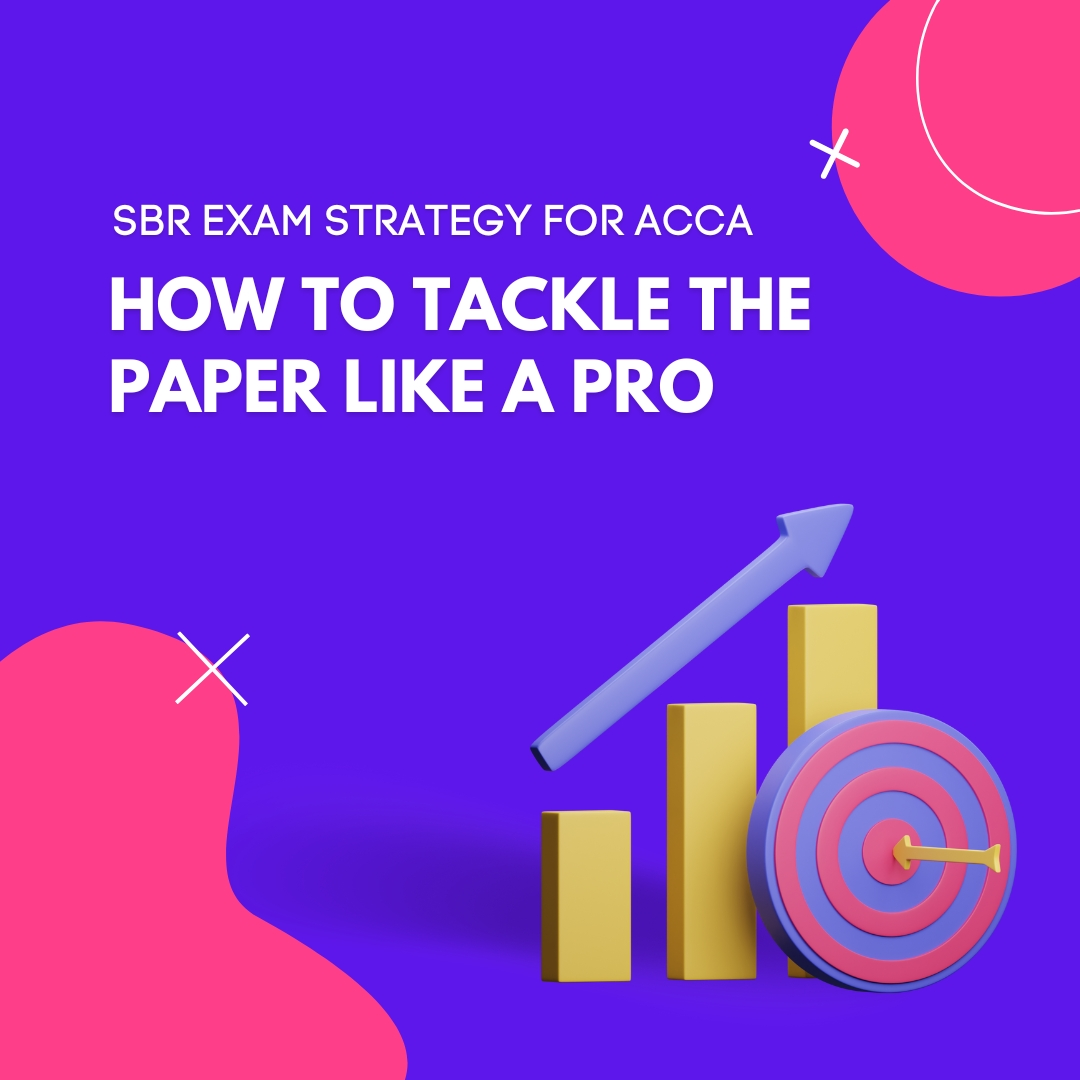SBR Exam Strategy for ACCA: How to Tackle the Paper Like a Pro
Why Staying Updated on Qualification Strategy Matters
ACCA’s Strategic Business Reporting (SBR) paper isn’t your typical accounting exam. It’s not just about knowing IFRS or the Conceptual Framework. It’s about understanding how to think like a professional accountant—with ethics, stakeholder impact, and commercial judgment baked into your answers.
For Indian commerce students preparing for SBR, a strategy-first approach is the difference between passing and resitting.
Here’s a blog packed with my personal tips to help you approach the SBR exam smartly and confidently.
SBR Exam Format at a Glance
Section A – 50 Marks
- Q1 (30 marks): Always based on Group Accounting + ethics
- Q2 (20 marks): Focuses on ethical dilemmas and reporting implications
- Spreadsheet tasks may be included for consolidation adjustments (not full financial statements).
Section B – 50 Marks
- Q3 & Q4 (25 marks each): Can test any area (financial instruments, sustainability standards, etc.)
- One question usually involves stakeholder perspective analysis
- 2 professional marks awarded for the quality of the evaluation
Key Point: Success depends on applying IFRS in context—not memorisation.
Why You Should Start with Section B
Most students dive straight into Q1 (Group Accounting), thinking it’s the “core.” But Q1 is also the most time-consuming. A smarter approach is:
- Q3 & Q4: 45 mins each
- Q2 (Ethics): 30 mins
- Q1 (Group Accounting): 60 mins
- Buffer: 5–10 mins for revision
This ensures you don’t get stuck on one question and lose easy marks later.
Structure Answers with This 3-Step Method
Nearly every SBR answer can be structured using this simple framework:
- State – Identify the relevant accounting standard or ethical issue.
- Apply – Use the case facts to show why it matters.
- Conclude – Provide a recommendation and highlight the impact on stakeholders/reporting entity.
This method keeps answers clear, logical, and professional, exactly what examiners look for.
Smart Spreadsheet Use in Q1
For consolidation questions, presentation is as important as accuracy.
- Label all workings clearly
- Link cell references logically
- Avoid over-complicated formulas
- Add short text explanations where needed
This makes it easy for markers to follow your thought process and award marks.
Why Ethics Deserves Extra Attention
Ethics makes up 20% of Section A and appears in every paper. Treat it as a scoring opportunity.
Common themes include:
- Pressure from management
- Conflicts of interest
- Transparency for stakeholders
- Auditor independence
Quick Hack for Ethics Answers:
Issue → Stakeholder Impact → Professional Duty → Recommendation
Master Question Verbs Before You Write
Many students lose marks by misinterpreting what the question asks.
- Evaluate – Weigh pros/cons, then justify a position
- Assess – Judge importance or impact
- Explain – Go beyond listing; show logic
- Recommend – Suggest actions with reasons
Read the verbs carefully before starting your answer.
Why You Must Use ACCA’s Practice Platform
Most students drop marks because they aren’t exam-tech ready. Practising on ACCA’s platform helps you master:
- Word processing answers effectively
- Spreadsheet tools for adjustments
- Navigating exhibits and PDFs
Exam technique is as important as technical knowledge.
Think Like a Marker, Not Just a Student
Examiners don’t want textbook definitions of IFRS. Instead, they reward answers that:
- Show impact on investors, regulators, and management
- Provide clear recommendations
- Offer justified conclusions with IFRS references
Always write as if you’re advising stakeholders, not writing notes for a textbook.
High-Yield Topics You Can’t Ignore
Based on examiner trends, focus heavily on:
- Group Accounting Adjustments
- Financial Instruments (IFRS 9)
- Revenue Recognition (IFRS 15)
- Leases (IFRS 16)
- Provisions (IAS 37)
- Ethics & Integrated Reporting
- Sustainability Disclosures & Stakeholder Analysis
Common SBR Mistakes to Avoid
- Writing generic, theory-heavy answers
- Ignoring stakeholder perspectives
- Misusing question verbs
- Forgetting conclusions or recommendations
- Poor formatting & weak time management
Final Thoughts: SBR Rewards Smart Thinking
The ACCA SBR exam is about connecting the dots—between IFRS, ethics, commercial judgment, and stakeholder needs.
With the right structure, time strategy, and focus on application over memorisation, you can ace the paper confidently.
Want Help Crafting Your SBR Exam Strategy?
Book a free 1-on-1 counselling session with our expert faculty.
We’ll help you:
- Build the right exam mindset
- Practise with personalised feedback
- Avoid the most common exam traps
Recent posts
Categories
Book Your Personalised Career Consultation Today
Error: Contact form not found.



